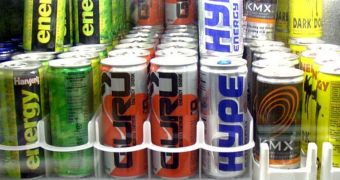The largest group of pediatricians in the United States has released its final recommendations on energy drink consumption. The document indicates that children should avoid consuming these beverages.
Energy drinks contain stimulating substances meant to boost energy. These include, but are not limited to, caffeine and various other plants. Throughout the US, doctors have recently taken an interest into the so-called nutritional value of such drinks
Until they reached this conclusion, the researchers carried out a significant number of analysis and researches into the matter. The team represents the opinion of the American Academy of Pediatrics.
The researchers say that energy drinks might appeal to kids primarily because they are sweetened, which makes them tasty. The buzz they generate may then hook the young ones, making them return to the same brand or brands over again.
Ads and other promotional messages featuring prominent brans are also aired during times when kids are watching, and these commercials usually praise extreme behaviors unsuitable for, yet appealing to, children, LiveScience reports.
“Rigorous review and analysis of the literature reveal that caffeine and other stimulant substances contained in energy drinks have no place in the diet of children and adolescents,” AAP researchers Marcie Schneider and Holly Benjamin explain.
They reveal that both energy and sports drinks were scrutinized in this investigation. The study revealed that it's acceptable for young athletes to consume sports drinks, but not energy drinks.
“We certainly think in the interest of our children, improvements can be done in the labeling of these types of beverages.” says Benjamin, a University of Chicago pediatric sports medicine specialist.
““Sports drinks do have a place, but it’s in a small population. Parents need to understand [the difference between sports and energy drinks], and so do doctors,” the expert goes on to say.
“Basically, the biggest problem with obesity is kids are taking too many calories in in their diet and they’re not able to burn off all of those calories every day, and so they gain weight,” he explains.
“Kids are not just overeating, but they are drinking high-calorie beverages,” Benjamin concludes.

 14 DAY TRIAL //
14 DAY TRIAL //